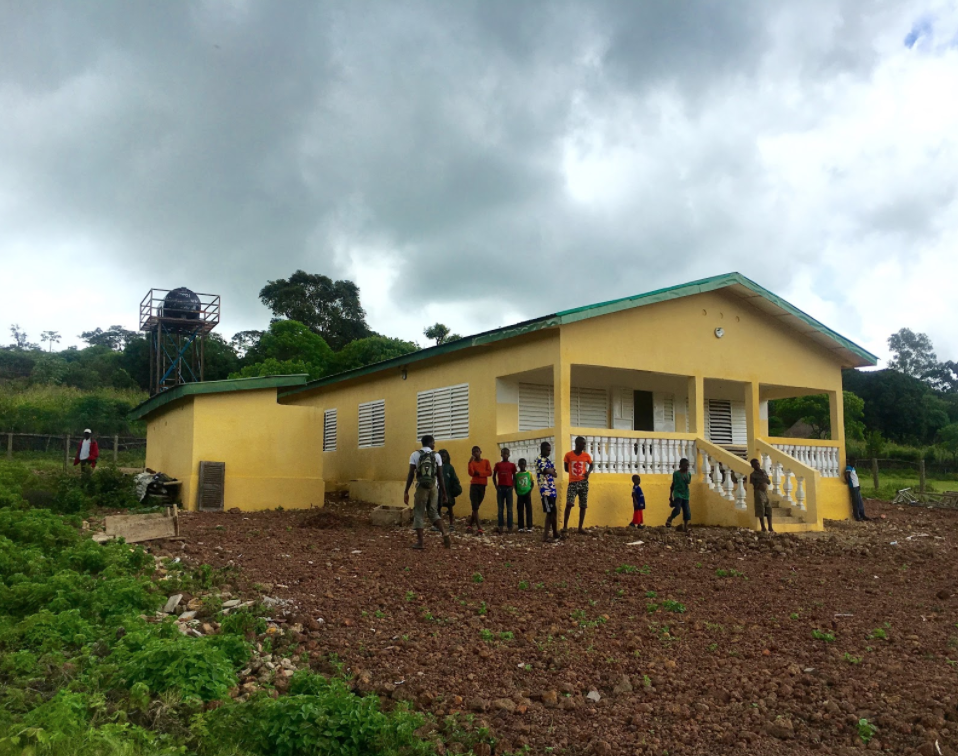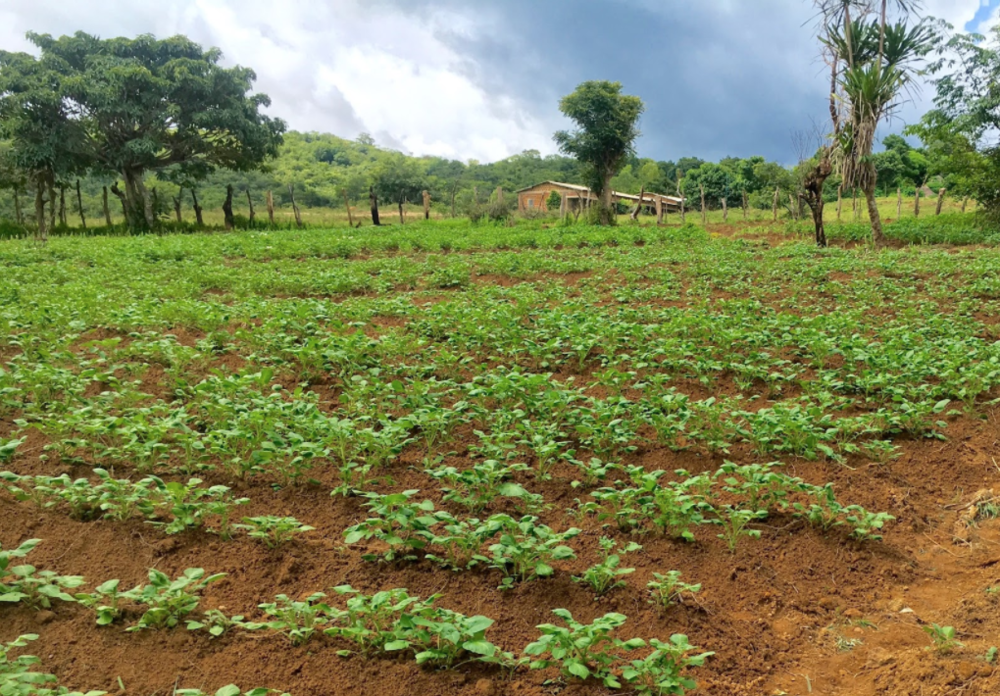
By Taylor Snyder
When eHA-Guinea’s (eHA-G) staff first arrived in the village of Saran, they found the valley landscape to be lush, with an abundance of crops growing in wide varieties. It was October of 2015, and many women in the village were out in the fields tending to their potatoes, which were being grown in tiny individual plots of land. While connecting with the community on ways to collaborate toward strengthening their district health posts, eHA-G’s staff was inspired to also leverage their experience supporting female entrepreneurship.

eHA-G’s staff described to several village women how they could combine their small plots of potatoes into one larger vegetable plot, in order to increase revenues and simultaneously decrease the amount of time they spent working in the field. The women followed that technical advice and expanded it further by forming a cooperative, combining plots of land, working together in the field, and diversifying their crops beyond potatoes to include ginger and cabbage. This dynamic cooperative commenced in February of 2016 and is now composed of 20 smart, joyful, and dedicated women.
Working together and employing several of their natural leadership skills is saving these women time, earning them more money, and creating a team culture where they count on each other. When they were working individually, they only earned a small amount of revenue. As a result of the new cooperative, they currently have 1 million GNF in their bank account and another 600,000 GNF ready to be deposited.

From the income earned, the cooperative reinvests in buying additional crops, shares some of the profit for their own personal needs, and put the remaining balance in their cooperative’s bank account. The women previously worked with the “federation paysanne,” but are now leveraging the talents of one woman’s bookkeeping skills to manage their finances independently.
Four growing seasons of experience has lead to the cooperatives’ creation of a working schedule that achieves both their cultivation and lifestyle goals. Three days a week, they gather early in the morning to work together in the fields. While most of women are in the field, they designate two women to cook a meal for the entire team and their families.
[youtube https://www.youtube.com/watch?v=z4eFScPbpZE?rel=0&controls=0&showinfo=0&w=640&h=360]
A major setback occurred last season when, due to heavy rain, their entire agricultural production was lost. The ramifications of the lost crops meant that the group lost food sources and income. Yet, the major outcome was that it reinforced the cooperative’s mission. They realized that by working and saving money together, what could have been devastating losses to individuals was just a small setback for the larger team.
